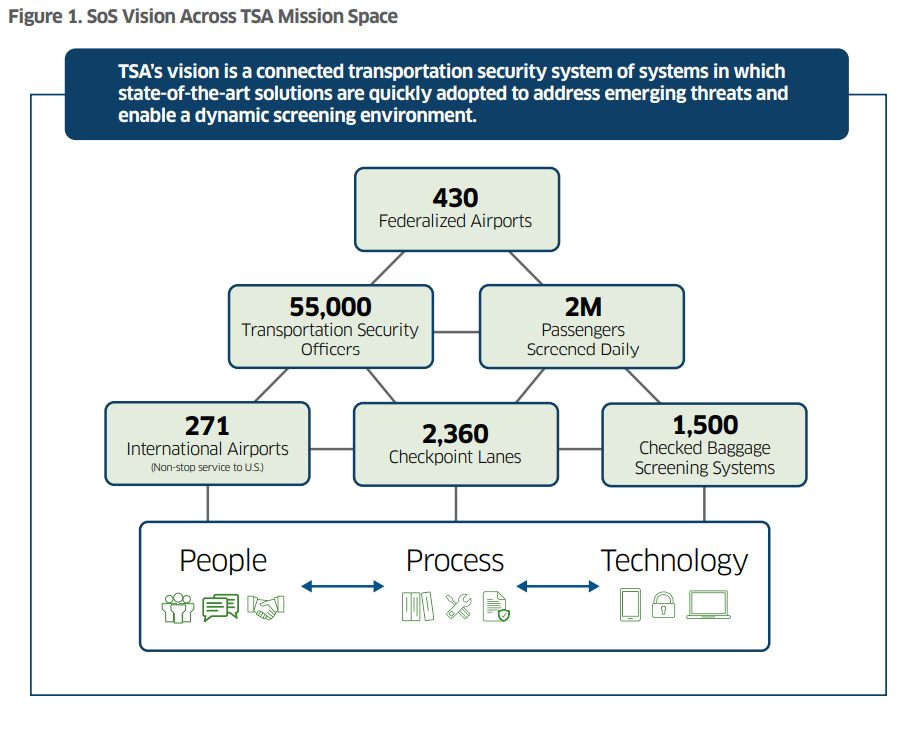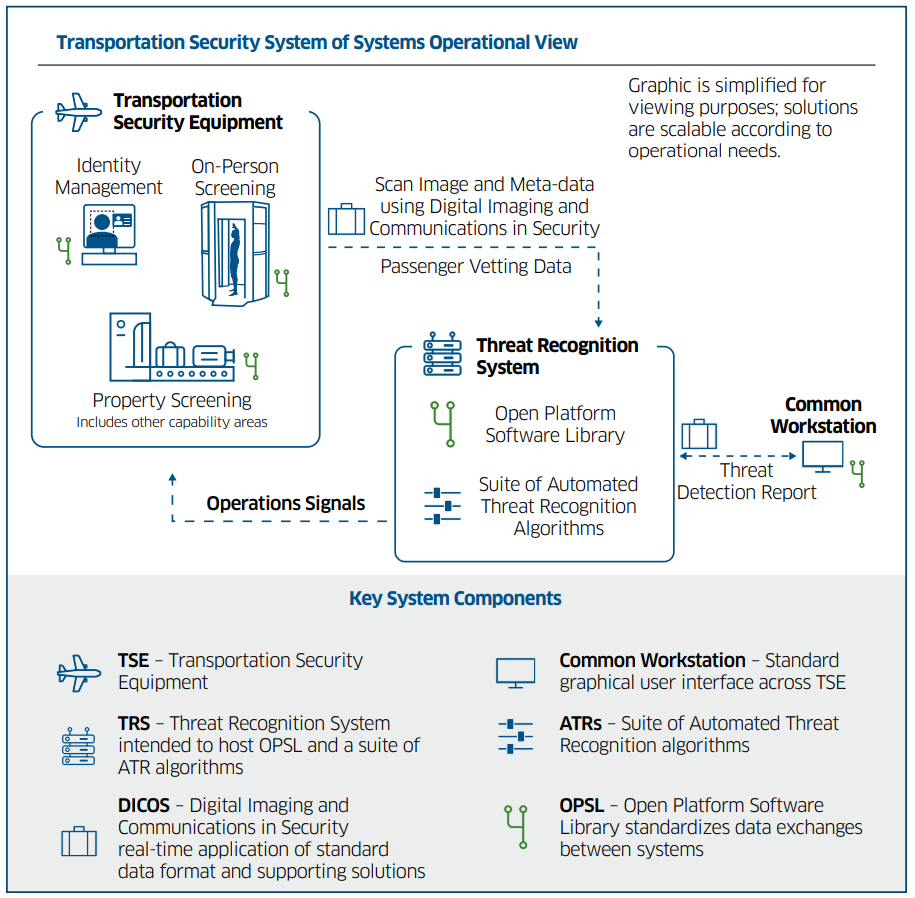In today's fast-evolving aviation security landscape, the need for standardized, interoperable, and reliable communication across systems is more critical than ever. At the core of this effort lies the Digital Imaging and Communication in Security (DICOS) file format, an essential element of the Transportation Security Administration’s (TSA) Open Architecture (OA) initiative. As the architect and developer of DICOS versions 2, 2A, and 3, Stratovan stands at the forefront of helping organizations integrate and validate this crucial file format to ensure seamless interaction with the broader Open Platform Software Library (OPSL) and other OA platform initiatives.
Why DICOS Matters in the Aviation Sector
DICOS is a pivotal standard in the aviation industry, designed to facilitate the transfer and interpretation of security imaging data between various security systems, including X-ray, CT, and other non-invasive detection technologies. By enabling these systems to communicate seamlessly, DICOS fosters interoperability across diverse security devices from different manufacturers. For the aviation sector, this standard is vital as it ensures that security data is compatible, reliable, and efficiently shared across platforms, thus improving security efficiency, accuracy, and responsiveness.
The TSA’s drive to develop an Open Architecture for security systems, spearheaded by the OPSL, has made DICOS compliance a critical requirement for any software or hardware solution aiming to integrate into this ecosystem. Any system that hopes to operate within this framework must support DICOS—ensuring that imaging data can be exchanged without error or delay. In this high-stakes environment, even minor integration missteps can lead to costly inefficiencies or gaps in security coverage, costing the TSA (and the U.S. taxpayer) more and reducing mission effectiveness.

DICOS also represents a mutual development process between industry and regulators. Working through NEMA, multiple vendors collaborate with the TSA to define features and capabilities to add to the standard file format. Once the council votes to ratify a new standard, a Software Development Kit (SDK) is created to assist vendors in integrating the file format in a standardized way to ensure compliance between technologies. This process embodies the holistic approach to open architecture TSA is championing, ensuring industry expertise has the means to contribute to the OA implementation process so their products, services, and technologies can continue to provide the best outcomes for the TSA and the traveling public.
The Technical Challenge of DICOS Integration
Achieving compliance with the DICOS file format isn't just about checking a box—it’s a technical challenge that requires a deep understanding of the standard itself, the complexities of file validation, and the subtleties of inter-system communication. DICOS integration demands expertise in image analysis, compression formats, object segmentation, and threat detection algorithms. Furthermore, ensuring that this data is accurately and efficiently transferred between security devices requires a thorough grasp of the DICOS file structure and the ability to troubleshoot and address discrepancies in file communication. While an application can automatically check many elements of the DICOS format, there are multiple areas within DICOS that require semi-manual checks and adjustments. Additionally, it helps to have a vendor well versed in the many technologies being integrated to fully grasp the lifecycle of a DICOS file, its Threat Detection Report (TDR), and all the needs the follow-on devices and software might expect when the file arrives to them to process.
Versioning further complicates this process. With multiple iterations of DICOS in circulation (versions 2, 2A, and 3), systems must be capable of supporting the specific version(s) they may need for their testing facility or deployment location. Ensuring compliance with the relevant versions, alongside addressing specific needs of the OPSL and OA platform, is a complex task that many organizations can struggle to navigate.
The Strategic Business Advantages of DICOS Compliance
Despite these challenges, successfully implementing DICOS brings immense strategic value. Systems that are DICOS-compliant are inherently more flexible and adaptable, allowing airports and aviation security organizations to integrate best-in-class technologies from multiple vendors without getting locked into proprietary solutions. This creates a modular, scalable approach to security infrastructure, one that can evolve alongside emerging threats and new technologies.
Moreover, DICOS compliance positions organizations at the cutting edge of aviation security innovation. The TSA’s OA initiative is shaping the future of security systems worldwide, and those organizations that adopt and implement DICOS will be the ones best poised to participate in this new ecosystem. Integrating seamlessly into OPSL will not only ensure smooth operations today but will also future-proof your systems for the next generation of security technology.

How Stratovan Simplifies DICOS Integration
With thousands of hours invested in DICOS standard development, software implementation, file validation, and customer support, Stratovan is uniquely positioned to guide your organization through the complexities of DICOS integration. As the global architect of DICOS versions 2, 2A, and 3, we have an unmatched level of expertise and insight into the intricacies of the format. TSA's specialized software development kits (SDKs), created and supported by Stratovan for nearly a decade, streamline the process ensuring that your products are fully compliant with the DICOS standard.
We understand the critical role DICOS plays in the aviation industry’s open architecture movement and are committed to helping you meet those demands efficiently. Whether you're looking to validate DICOS file structures, integrate DICOS with existing security systems, or develop new DICOS-compliant solutions, Stratovan can help. From assisting with project milestones to providing ongoing technical support, we’re here to ensure that your products are positioned to succeed in the Open Architecture landscape.
Partnering for Success
DICOS compliance is not just about meeting a regulatory requirement—it’s about positioning your products and systems to thrive in the future of aviation security. Stratovan’s unmatched expertise, experience, and tools can make this process seamless, allowing your organization to focus on what matters most: providing best-in-class security solutions.
Whether you’re developing new security systems or ensuring that your existing solutions are ready for the OPSL and other DICOS dependent OA platforms, Stratovan is here to help with every step of the DICOS integration journey. Reach out to us today, and let us support you in achieving your product integration goals, meeting critical project milestones, and addressing any of your DICOS file format needs. By choosing Stratovan, you’re partnering with the global leader in DICOS innovation—ensuring that your systems are ready for the future of aviation security.
For more on how we can assist your particular project, please reach us here!